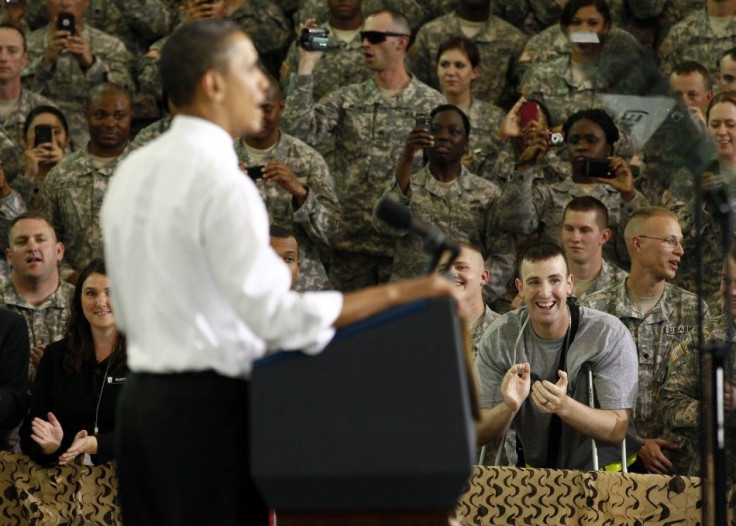Obama Expected to Announce First Phase of Afghanistan Troop Drawdown

President Barack Obama's plan for pulling U.S. troops from Afghanistan has been the subject of intense debate in the past few weeks, punctuated by a much-anticipated speech Wednesday tonight in which the president will lay out a timeline.
But no matter the pace or scale of the withdrawal, America will maintain a substantial presence in the country, reflecting a decision on Obama's part to make the Afghanistan effort the lynchpin of his foreign policy. Among other 2008 campaign themes, Obama campaigned on a contention that Iraq had diverted attention and resources from Afghanistan, where he said the U.S. had more pressing strategic interests.
I believe [Afghanistan] has to be our central focus, the central front, on our battle against terrorism, Obama said. I think one of the biggest mistakes we've made strategically after 9/11 was to fail to finish the job here, focus our attention here. We got distracted by Iraq.
Obama then followed through on that promise, pouring more troops into the country to counter an emboldened Taliban. That culminated in committing 33,000 additional troops last summer, a strategy that mirrored a sharp influx of troops into Iraq under President Bush -- the so-called surge -- that Obama's former rival U.S. Sen.John McCain, R-Arizona, embraced as vindicating the war in Iraq.
According to reports, Obama is weighing options that range from withdrawing 5,000 troops to the entirety of his Afghanistan surge over the course of the next year. But even if he opts for the latter, that will still leave approximately double the number of American forces as when Obama took office. Just as Bush's legacy is intertwined with Iraq, Afghanistan has become Obama's war.
In 2009, U.S. casualties in Afghanistan eclipsed casualties in Iraq. In 2010, spending on Afghanistan surpassed spending on Iraq.
The mounting cost of the war has come under increasing scrutiny, and earlier this week the United States Conference of Mayors passed a resolution urging Obama to redirect money for Afghanistan to their reeling budgets. Osama bin Laden's death has spurred furious debate over the conflict's future and has also fractured Obama's administration -- Vice President Joe Biden supports a swift withdrawal, while outgoing U.S. Secretary of Defense Robert Gates and Secretary of State Hillary Clinton have warned that the situation there is too fragile for anything but an incremental drawdown.
Meanwhile, several Republican candidates for president have advocated a sharply curtailed U.S. presence there, a sign of an increasing bipartisan distaste for the war. But McCain, with whom Obama once sparred on U.S. commitments abroad, has become an ally.
A recent Senate report on aid to Afghanistan depicted the country's heavy dependence on American largesse and cautioned that a sudden exodus of American aid could plunge the country into an economic crisis. It also suggested that stability there would require a sustained presence of U.S. advisers who could take over when the military departs, implying that even without a military presence there, America could be supporting Afghanistan for years to come.
© Copyright IBTimes 2024. All rights reserved.





















